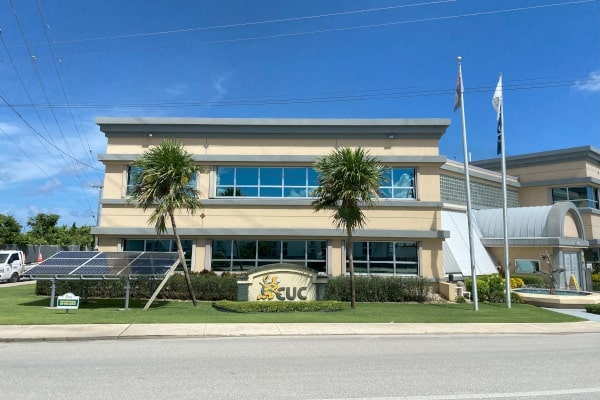Crown says immigration agent stole $55k from client
(CNS): Paulette Anglin-Lewis (54) appeared in Grand Court on Tuesday, facing charges of theft in connection with more than CI$55,000 that the crown said she stole from one of her clients. The owner of Anglin-Lewis & Associates, a well-known immigration service company that has been in business for some 12 years, is accused of taking money that was supposed to be for the annual permanent residency fees for James Rawcliffe for 2013 and 2014. Instead of paying the fees, she used the cash to pay her own bills, leaving her client exposed to the removal of his residency rights and risking his future status application.
As prosecutor Toyin Salako opened the case for the crown before a jury, she told them that Rawcliffe had employed the services of Anglin-Lewis after receiving permanent residency in 2008 to ensure that his fees were paid each year and to then take on his application for naturalization and Caymanian Status.
Each year Anglin-Lewis would send an invoice to Rawcliffe, who would pay the agent in the expectation that she would deal with the immigration department and ensure his fees were up to date. In 2013 Rawcliffe paid his annual invoice of $27,750, which included his right to work as a CPA, permanent residency fees, the immigration administrative fee and Anglin-Lewis’ service charge and thought no more about it, expecting that as usual the fees would be passed to government and all would be well.
But at the time when he paid the money, Anglin-Lewis’ business was in trouble, and instead of settling Rawcliffe’s account with immigration, the cash was sucked up into the business; the PR fees were never paid because on the day they were due the business was more than $10,000 short. The crown said that instead of ring-fencing the money or using it as intended, Anglin-Lewis co-mingled the funds with her own business accounts and “used the fees paid… as if it were her own money”.
Anglin-Lewis did not tell Rawcliffe about the financial trouble she was in or that his fees were not paid, Salako told the jury.
Nevertheless, a year later Anglin-Lewis sent the next annual invoice to Rawcliffe, who, as in previous years, sent another money transfer to the agent for $27,750 to cover the fees and charges, once again believing his account with the government was up to date. But Anglin-Lewis again failed to pay the fees because her own business account was overdrawn by $90,000 when Rawcliffe sent his money to her, and on the day his fees were due on 16 May 2014, she was still more than $16,000 overdrawn.
By failing to pay the fees two years in a row, she pushed Rawcliffe’s debt with the immigration department to over $55,000 and was well aware that the fees were outstanding. A month or so later Anglin-Lewis, a former veteran of the immigration department, contacted the finance department and requested more time to pay the outstanding debt. She was given until the end of June but failed to make any payments.
Salako told the jury that she also failed to contact Rawcliffe to tell him she was having trouble paying but was trying to rectify the situation. In September that year Anglin-Lewis again contacted immigration asking for more time to pay the debt, but for the second time she failed to meet a commitment to make the payments.
As time went by, the debt was passed to the immigration collections department, and on 15 December the department contacted Rawcliffe directly about the debt. Learning for the first time that the fees had not been paid, Rawcliffe simply assumed there was some mistake because he had receipts from Anglin-Lewis for the payments.
He contacted the agent but was unable to talk with Anglin-Lewis, who, he was told, was out of the office. He continued to correspond with the Anglin-Lewis & Associates bookkeeper, one of just two women she employed at the small business, and was initially reassured by the staff member’s claims that this was an administrative error or an oversight.
However, as 2015 progressed, Rawcliffe became concerned when he could not get reassurances that the situation had been rectified. When he went to immigration himself he learned that, despite paying Anglin-Lewis, he was still responsible for the outstanding fees and was facing the possibility of his permanent residency being revoked. In addition, the outstanding debt was impacting his forthcoming hearing for his Caymanian Status application, putting his job, his right to remain and family life in jeopardy after more than 15 years living and working in Cayman.
As a result, Rawcliffe began looking for help from friends and family and eventually borrowed money from his father to pay the outstanding $55,000 worth of back-fees to prevent his potential deportation and to get his Caymanian status application back on track, as that had been placed on hold because of the bad debt.
He then turned to Anglin-Lewis to repay his debt, but after struggling to get hold of her, he instructed lawyers to help him. After several months of back and forth correspondence, where Anglin-Lewis repeatedly failed to meet commitments to pay back the cash, Rawcliffe reported the case to the RCIPS Financial Crimes Unit in the summer of 2015 and Anglin-Lewis was arrested and interviewed.
As he gave evidence, Rawcliffe revealed that, eventually, after her arrest and charges were laid against her, Anglin-Lewis paid back the money in installments, including his legal fees and a small amount of interest.
Anglin-Lewis, whose business continues to operate, has denied stealing the money from Rawcliffe. When she was interviewed by the police, she claimed that it was an administrative error which had been compounded by her own ill-health and that she had never intended to steal the money.
The case continues.




































